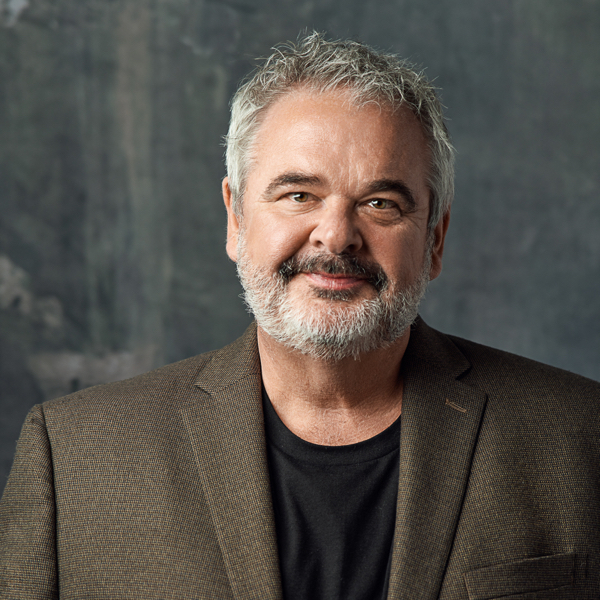To have any community become engaging, healthy and successful, we need to think in terms of creating a sense of ‘We' rather than 'Us & Them.' This is true whether that community is a corporate culture, a neighborhood, a nation, or a marriage.
Unfortunately, we are currently faced with a breakdown of ‘We’ - in our fragmented communities, in our polarized media, in our distrust of institutions and in our public discourse. More and more there is a feeling of separation and discord, of blame and making wrong. Everywhere we are being seduced into being part of a smaller tribe of ‘us’ versus ’them.'
I propose we need a new way of thinking about communication. We need a way of communicating that causes ‘We’ to happen - because what our world needs right now is a sense of being together in the face of our greatest and most urgent challenges. [And the stem ‘comm-' in both ‘communication' and ‘community' means ‘together’].
But our current habits of thinking around communication are not about We - instead they are about maximizing persuasion, influence or manipulation of ’the other.’ Communication in the current paradigm - the ways we have been teaching our leaders, the best practices we believe are the markers of 'great communication' - actually reinforce separation: ‘Look at me, listen to me!’ or ‘I win/you lose’ or 'I am right & you are wrong’ or 'I need to change you.' They are the cause of the very separation we are trying to overcome.
Unconditional communication is characterized by:
● Genuine authenticity
● A willingness to name and deal with reality
● Vulnerability
● A willing invitation to co-create shared outcomes
And, most of all,
● The idea that our communication can be an act of service to others - rather the means to get something from others.
This is a way of communicating that creates engagement, chosen accountability and willingness to act. It doesn’t talk about those things; it causes them to happen.
The Unconditional Communication method is being taught in organizations and institutions at the level of one to one, and team to team. It is also positively impacting friendships, relationships and parenting. And there are also tools in the Unconditional Communication approach that can transform how we engage citizens in the public discourse. There are much more powerful ways of connecting people to a shared future than the Town Hall or the televised debate. And we need them, now.
The Ten Communication Principles at The Heart of This Approach
1. The work is to create a bigger future
There is something you want to create (and that’s a much bigger concept than ‘having something to communicate’). There is a difference you want to make. There is a future you want to be different. What is that?
2. We create what we intend through communication
The only fuel you have to create something with and through others is communication. Nothing you are trying to create is going to happen outside the ‘ocean of communication in which we all swim.’ You don’t have many problems or challenges; you have only one. If you transform your communication, you can transform everything.
3. All creation is co-created
Audiences are not passive recipients of your communication messages; they are active co-creators of the communication with you. Thinking people are trying to ‘listen to understand you’ is a profound failure in our conception of what communication is and how it works.
4. All communication is an inside-out conversation
It always happens first 'in here' (we call this ‘thinking') - and only then 'out here’ - with others
5. Communication is only effective when it is an act of Service to others
The only reason any audience is in the room with you is that they want to get something. Communication is, therefore, an act of service to others. If you don’t give them what they need, they won’t give you what you want. If you lead with your needs, you will show up as noise.
6. Communication is grounded in authentic Presence
Being truly present to each other beats any communication style or technique. Presence is magnetic, and rare.
7. Communication is built upon effective Connection with others
Authenticity and transparency create a foundation we can all build from; its absence leaves us vulnerable to attack and defense strategies. Connection builds a Want to rather than a Have to.
8. Communication causes Outcomes, so it is best to be intentional about those
Communication is the cause of action: it should be designed to make something happen. We don’t need to communicate ‘about something’; we need to communicate ‘so that something.’
9. Life is communicating with us: Life is trying to help us
There are patterns in our individual and collective experience that we need to be aware of. The past is prologue. We need to own and include the best of it, and then transcend it.
10. ‘Community' is created in collective conversation, and that happens in practices that embody the shift from 'I/You' to ‘We'
Communication will cause change, but there is no change without a shift in identity in everyone involved - from passenger to driver; from witness to agent; from audience to co-creator. This is the concrete reality behind the hope that ‘a leader’s job is to create other leaders.’ And it is also the truth behind the word Performance, which means to make real, to manifest something in reality through other people.
